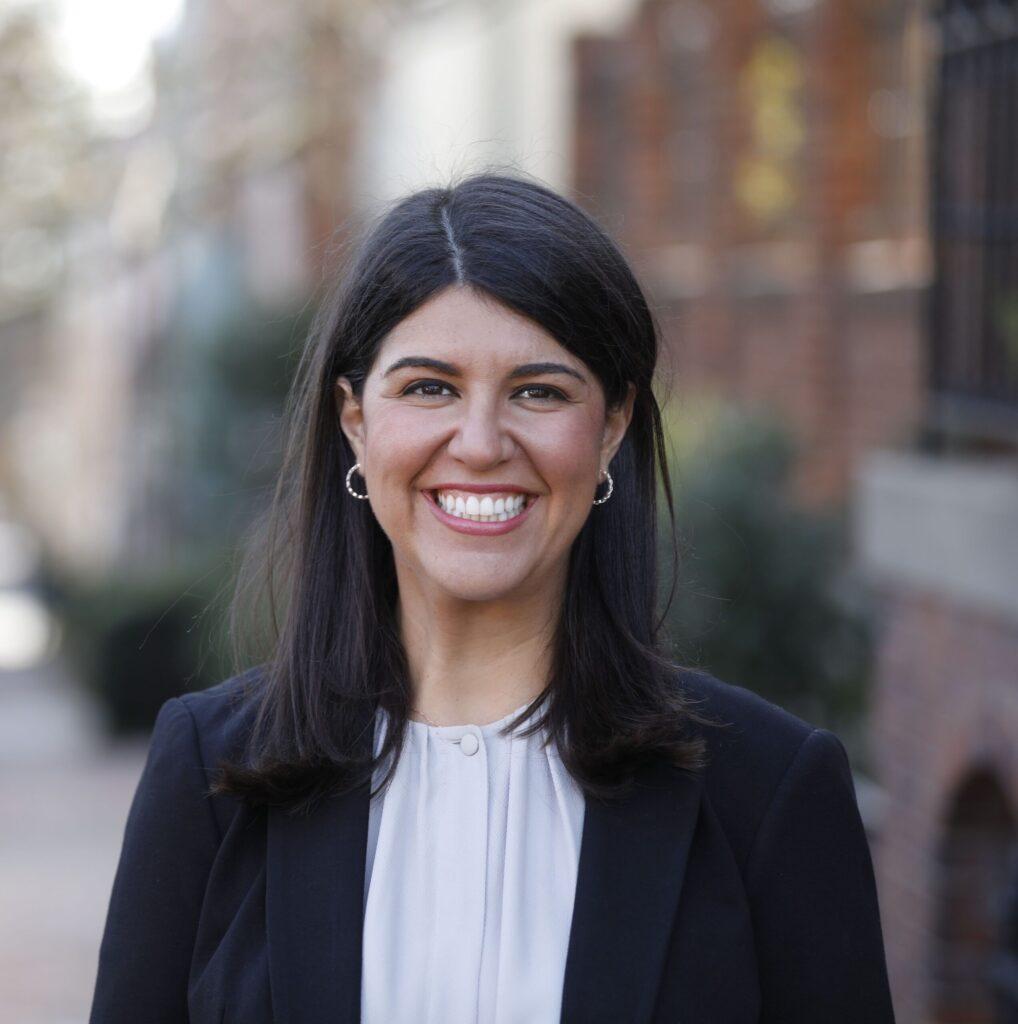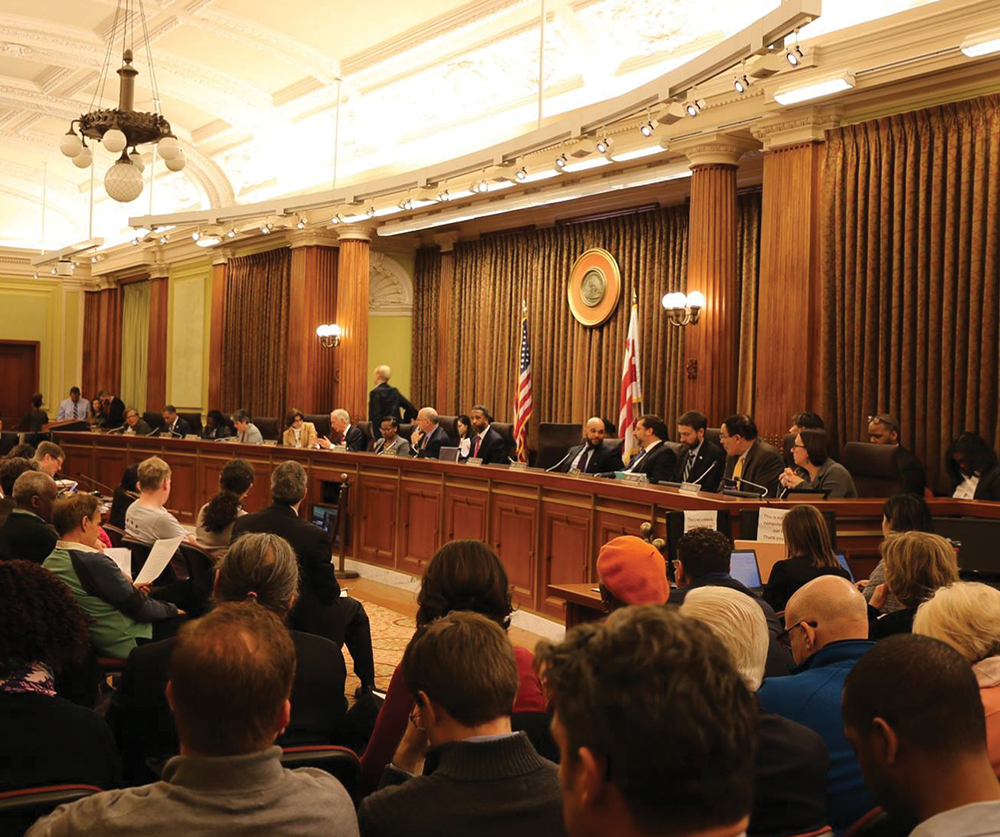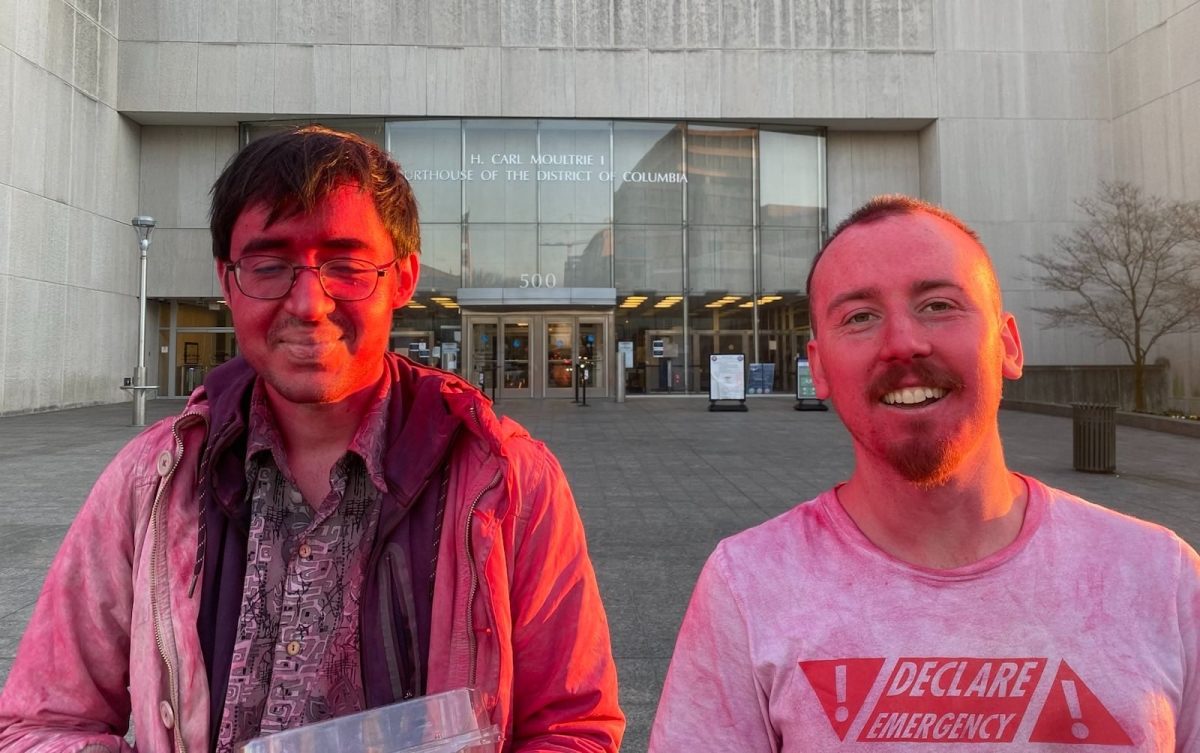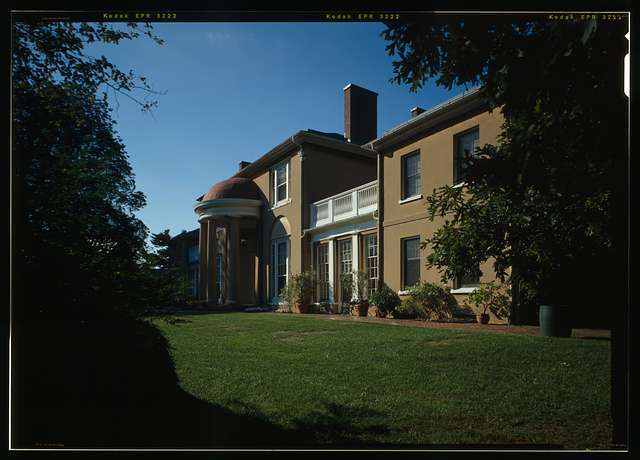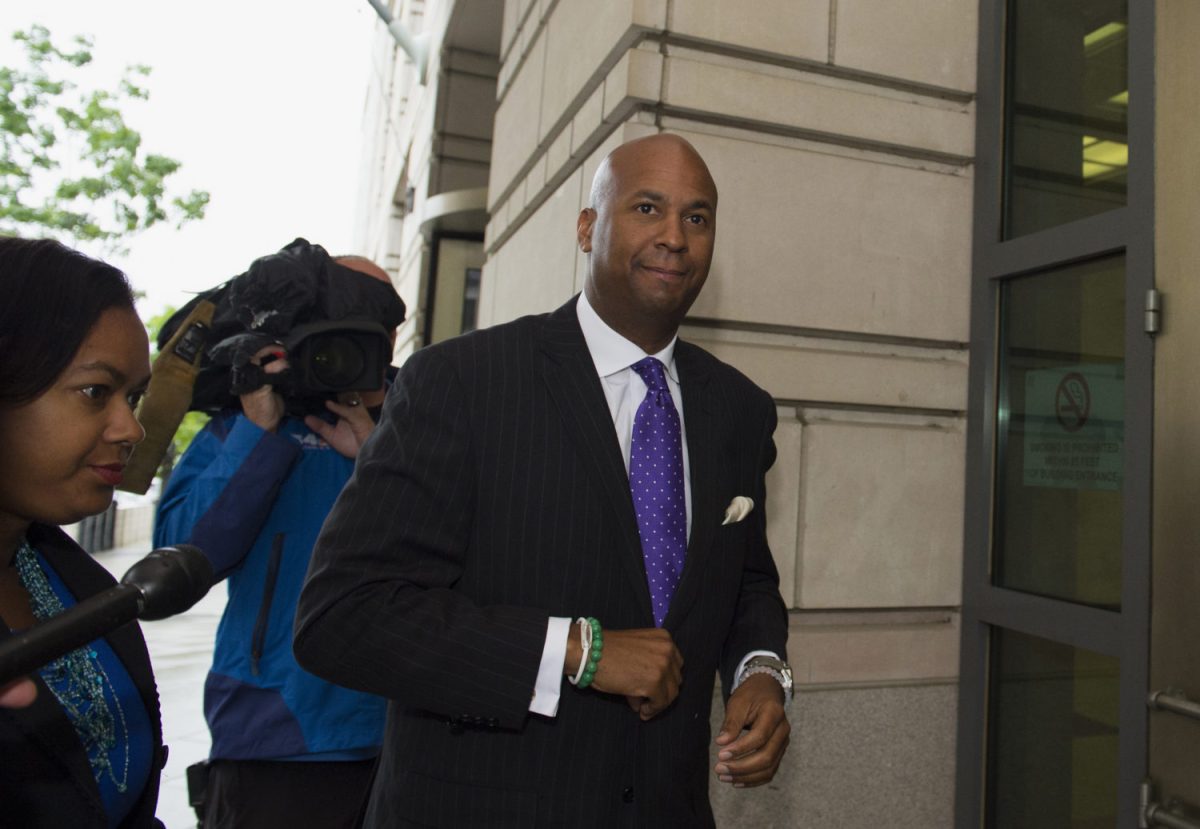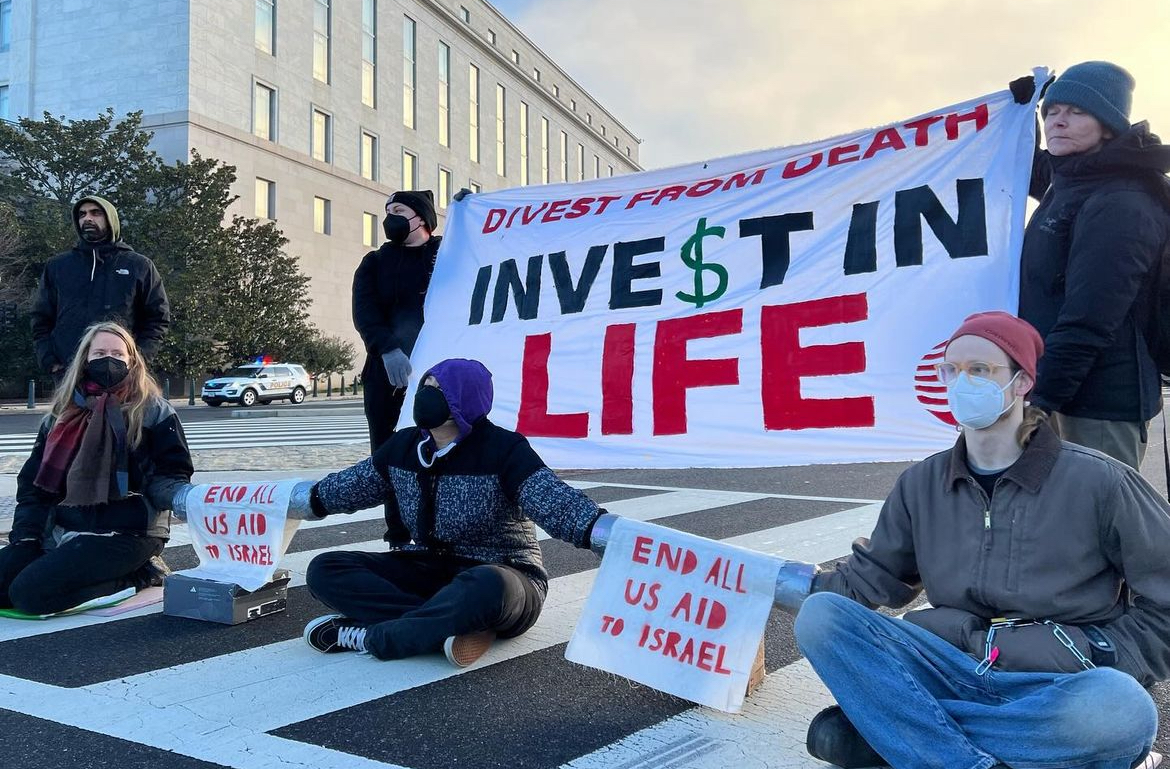A sweeping yet controversial crime bill that seeks to crack down on crime in Washington, D.C. advanced upon its first reading at the D.C. Council on Feb. 6.
The Secure D.C. Omnibus Amendment Act of 2024 posits to establish drug-free zones, allow police to engage in vehicular chases in the case of imminent threat and increase penalties and definitions for certain crimes such as retail theft. The bill comes amid pressure from the mayor and the public for the council to address D.C.’s violent crime rates, which increased by 39% between 2023 and 2024.
Ward 2 council member Brooke Pinto (LAW ’17), who introduced the bill, said the bill aims to protect communities and prevent repeat offenders from engaging in crime again.
“The interventions I am moving in Secure D.C. reflect the need for fair and consistent enforcement of laws that are in place to drive down crime in our communities and the need to ensure the small number of individuals repeatedly engaging in violence are held accountable and prevented from reoffending,” Pinto wrote in a statement to The Hoya.
The act, however, has faced speculation from critics for its so-called tough-on-crime approach.
Eduardo Ferrer, policy director for the Georgetown University Juvenile Justice Initiative, which aims to further Georgetown’s involvement in solving issues within the juvenile legal system, said that Secure D.C.’s measures are counterproductive to decreasing crime.
“I think this bill is mainly a reactive bill. It is not going to reduce harm the way that we would want legislation or policy change to do so. And the provisions related to increased penalties, increased detention, increased incarceration are likely to create a lot of harm in the distance,” Ferrer told The Hoya.
The bill, formally titled Bill 25-345, passed with 12 council members voting in favor and one, Trayon White, Sr. (Ward 8), voting present. According to Pinto, it will go through a final reading and vote March 5, before facing mayoral and then ultimately congressional approval.
D.C. Mayor Muriel Bowser expressed approval of Secure D.C. in a statement following the bill’s introduction Jan. 11.
“We know that driving down crime requires us to send a clear message that if you make our city less safe, if you bring violence to our community, you will be held accountable,” Bowser wrote in the statement.

The bill passed with major amendments, which the council unanimously approved. The amendments include keeping disciplinary records of police officers available to the public and expanding qualifications for who can file Extreme Risk Protection Orders (ERPOs), which allow people to file a request to the courts that a firearm be removed from a person who poses a risk to themselves or others.
Amendments also stipulate that Drug Free Zones may only be established for a maximum of 15 days per month with 24 hour advance public notice, with officers in such zones prioritizing providing necessary social services. Drug Free Zones allow police to establish a 1,000 square foot area with high crime rates as “drug-free,” vesting them with the authority to arrest groups of 2 or more people they suspect to be congregating to sell drugs to prevent open air drug markets. Legislation passed in 1996 allowed for Drug Free Zones in D.C., but was ultimately repealed in 2014 due to concerns over due process and constitutionality.
A racial equity impact assessment from analysts at the council suggests certain provisions in the bill, such as Drug Free Zones, will exacerbate racial inequity in D.C.
Pinto wrote to The Hoya that she will continue to advocate for the inclusion of one particular provision that was not included in the draft ultimately voted on, which would have allowed officers to collect DNA evidence of a person under arrest on the condition that the DNA is destroyed if the person is not charged.
“I am deeply disappointed that this important, common-sense measure was amended out of Secure D.C., and I will be working with my colleagues to ensure DNA collection is included in the final package to hold repeat offenders accountable and better deliver justice to victims,” Pinto wrote.
Ferrer told The Hoya that he remains hopeful for further amendments to be established before the bill is passed.
“I think the amendments that keep the recent reforms around police accountability are promising. I do think we need further amendments to make sure that we are maintaining reform throughout police accountability that had been passed by the council in the wake of the racial justice work that had been done during the pandemic,” Ferrer said.
Ferrer said that more prevention and intervention measures need to be taken to ensure public safety and minimize gun use, rather than increased prosecution.
“If what we want is a safer D.C., we have to do something about the proliferation of guns in the District,” Ferrer said. “Not something reactive, but something that actually prevents or works to prevent guns from coming into the District in the first place, or to get them off the streets in non-punitive ways that don’t create even more harm or exasperate the harm that’s already happening as a result of a feeling of lack of safety.”


